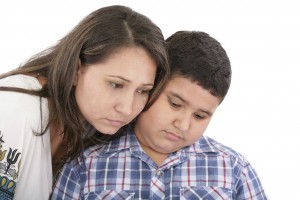Advice for Parents and Guardians About Bullying: Part 2

Posted on October 2, 2014

 As promised, I have listed part 2 of my advice for parents and guardians about bullying. I hope that this week I have enlightened you all on how important it is to be aware of how bullying can effect your child’s mental well being.
As promised, I have listed part 2 of my advice for parents and guardians about bullying. I hope that this week I have enlightened you all on how important it is to be aware of how bullying can effect your child’s mental well being.
Remember, we all have the power to help, stop or eliminate bullying.
If your child is mistreating others, you can try the following strategies:
Consider the possible reasons behind your child’s actions. If your child mistreats others, that does not make him or her “a bully.” There are many reasons youth do mean things. Here are some of them:
- Youth who mistreat others may be watching and imitating characters in TV shows and movies that glorify mean behavior.
- They may be trying to be funny.
- They may be expressing anger about events in their lives.
- They may be lacking in skills like empathy, thinking before they act, or sharing with others.
- They may be retaliating for others’ negative actions instead of using more positive strategies to stop those actions.
- They may be trying to get the approval of their peers.
- A very few youth truly wish to hurt others.
If your child or teen repeatedly behaves in negative ways toward others, it is important to take this seriously. If young people get status, pleasure, power over others, or other positive outcomes from mean behavior, they are more likely to continue those mean actions into adult life. Searching for reasons may be helpful, yet we should not let the reasons for mean behavior become excuses. Young people who mistreat others need to learn to take responsibility for their actions and choices. They also need to take responsibility for the harm their actions can cause.
We should ask our children to describe their negative actions, tell us why these actions are wrong, and think about what else they should have done in the situation they were in. We should also look for situations in which our children act in a kind, considerate manner and point these out to them. When we do this, young people can notice how good they feel when they help or include others and make other positive choices. Similarly, we can involve youth in positive hobbies and in helping others, so they experience the satisfaction of hard work and kindness.
What if your child mistreats others repeatedly and the strategies listed above do not help, or if the negative behavior is severe?
In that case, evaluation and possible treatment by a mental health professional who is experienced in dealing with issues of aggression can be very important. Repeated mean behavior may be a sign of real distress or of significant problems, which can often be addressed effectively by a therapist.
What if your child is distressed after witnessing mean peer behavior?
You can encourage your child to find a way to support the young person who was mistreated or alone, or to tell adults at school what he or she sees. Mistreated or bullied youth told us in our research that what they most wanted was someone to spend time with them, to encourage them, to help them feel hope, and to help them remember that the mean behavior was not their fault. Your child can do all of these things and they are likely to help. “Standing up against bullying” – that is, telling bullying youth to stop, may lead to someone getting hurt. It is sometimes possible; yet befriending, including, and encouraging youth who are bullied is more likely to help them and more likely to be safe for your child.
I hope you feel more confident about standing up to bullying. For more information about what we can do about bullying, see Youth Voice Project: Student Insights Into Bullying And Peer Harassment
Don’t forget to take my quick weekly quiz to see how much you have learned today. There is a reward at the end of the quiz, so act now before they are all gone!
Please read our Disclaimer.
Comments are currently closed.









